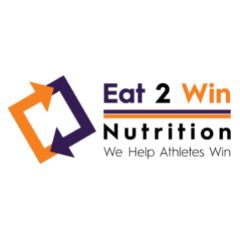Protein Recommendations for Athletes
Q&A for Session #2
Protein Metabolism and Recommendations for Athletes
Sports Nutrition Symposium 3.0
Monday June 21st, 2021 @ 7 pm CST
Recommending protein intakes for athletes isn't a one size fits all approach. Understanding protein quality, amounts, and timing, can help you to provide more tailored recommendations to your athletes to help them perform at their best.
All live sessions are free to attend. If you want lifetime access to the sessions from Sports Nutrition Symposium 1.0, 2.0 and 3.0 then check out the VIP Pass!
- Do you suggest women in sports consume more protein during the second half of their cycle, or does the same rule apply with g/kg as men?
- Unfortunately there hasn't been a lot of research has on the impact the menstrual cycle has on protein recommendations. The current protein recommendations remain similar to those as men.
- Unfortunately there hasn't been a lot of research has on the impact the menstrual cycle has on protein recommendations. The current protein recommendations remain similar to those as men.
- I saw it was suggested to take in leucine specifically, and earlier Dr. Owen mentioned that leucine vs other AA doesn't truly have an impact, it's just important to have complete protein. What would be the benefit of taking leucine and in what dose?
- Leucine alone increases rates of mucle protein synthesis. We need essential amino acids to build protein. If you intake leucine alone, you'll still build new muscle protein from circulating essential AA in the blood, but once that is taken up, you'll need to replete the essential amino acids to continue muscle protein synthesis. In terms of a lecuine recommendation, 1-3g of lecuine in a given dose is a good start.
- How do you account those who have allergies and milk intolerance in relationship to performance?
- Is there a true milk allergy or lactose intolerance? Whey protein isolate and concentrate have very low lactose amounts and don't usually impact those who are lactose intolerance. An individual with a true milk allergy should speak with their doctor or medical team about a plan. Opting for plant based protein can also work, but you'll want to make sure you have a combination of EAA that includes leucine.
- For athletes who avoid dairy for various reasons, what would be your first alternative food recommendation for maximizing post-workout leucine intake?
- Would recommend consuming foods high in quality protein. This includes eggs, lean beef, salmon. Also other plant-based protein includes chickpeas and soybeans.
- Does the literature support supplementing BCAAs during long endurance exercise?
- Supplementing BCAAS in theory support those truly fatigued and deprived, for example, ultra endurance athletes may benefit from BCAAs. However participating in a ~90 min run or exercise, supplementing BCAAs are most likely not metabolically beneficial.
- As a sport nutritionists I want to maximize performance, much of the presentation is on muscle protein synthesis, how will does MPS predict performance over the long term?
- It doesn't. MPS is just a rate. So it most likely cannot be used as a predictor to measure potential performance. It doesn't necessarily predict the amount of muscle that you will gain over a long period of time. Also, there are many other components of performance including power. Overall MPS not a good predictor of performance.
- What about the digestion time of food vs supplementation? Does it impact in the anabolic window?
- Yes it does. Research has compared beef provided as a whole steak where it must be chewed vs. minced beef. Mastication plays a large role of releasing AA in digestion. So those who had the minced meat had a higher amount of amino acids. So be sure to chew your food!
- How far apart should we space our protein intake at meals? What’s a good amount of protein per snack?
- Research has been conducted to measure quick pulses vs larger bolus. Protein amounts of 10g, 20g, 40g were measure and spaced over same time window. It was found that the most effective amount was the 20g over the 3-4 hour period. It's been shown that chronic elevation of amino acids doesn't build muscle protein, but instead the spike of amino acids in a short amount of time increases muscle protein synthesis.
- Can you throw more light on anabolic window?
- The current takeaway is to get optimal protein! It is also dependent on type of exercise. Research still asks if the 30-60 minute window is really that important vs a high quality meal that is eaten 2 hours later. It may be better to consider your athletes lifestyle and focus on quality meals.
- What about the recommendation protein for youth athlete?
- Unfortunately there is very little literature for solid recommendations for youth athletes. Hopefully in 5-10 years may have new research for this answer.
- Has there been any newer research on g/kg protein during injury recovery or at least in the initial phase after injury?
- You can't out nutrition muscle loss. Maintaining protein intake is important during initial phase, but it is more helpful during any type of contraction. This would be the same as post-workout protein recommendation. Maintaining total caloric intake is the most important during bedridden injury.
- What should be recommended for athletes who are doing more than 1 sport during summer conditioning?
- This will depend on the sport and the athlete!
- Understanding that different athletes need different protein needs, is there an alternative to the traditional .8 g/kg/day that you suggest be used? How can the varying needs of different athletes be measured and met?
- Protein recommendations will depend on the individual athlete, the type of sport, length of training, and age. Current recommendations reach up to 2.1g/kg/day of protein for strength and endurance athletes.
- Most meta-analysis and systematic reviews on protein recommendations and athletes still seem to recommend anywhere from as low as 1.2g/kg to as high as 1.83g/kg in the literature. Some of these reviews have even been recently as 2020. Curious your thoughts for recommending as high as your 2.1g/kg/d for protein?
- The current recommendation of 2.1g/kg of protein came from phenylalanine oxidation methods. The current limitations of the study are from the method perspective. There has been research that high daily protein intake doesn't impact kidney function in healthy people and current research has shown that reaching the recommendation of 2g/kg will do the best for your athletes. It may be best taken in a dose or meal event perspective vs total protein intake.
- Is there any difference in protein consumption for female athletes who experience as cessation of their period due to their training?
- Hypothesize yes, since the cessation of menstruation is usually due to low energy availability and low protein intake will most likely be a part of low total energy availability. However, currently can't say with 100% certainty.
- What are some good protein sources for vegetarian/vegan athletes, and do we still recommend combining plant proteins at meals to create a complete protein?
- Yes, it is important for plant-based athletes to combine their sources of protein for optimal muscle protein synthesis. Leucine is a key amino acid in building muscle and it can be sparse in some plant based proteins.
- In weight cutting sports or when trying to improve an athlete’s body composition, how much more protein/kg would you recommend? Also, would you ever base protein recommendations on kg of lean body mass .vs. total weight in kg?
- yes - reason for total weight is because knowing total LBM is difficult. WE do make recs based on LBM - (research paper w/ recS). weight cutting for sports - this was overweight individual. 1.2 or 2.4g/kg day with high intensity exercise. we found 2.4 people increased muscle mass and lost fat mass. need to include resistance exercise.
- Is it okay for young athlete to consume protein supplementation?
- Quality food is always beneficial, especially teaching the youth population healthy eating habits. Whenever considering supplementation speak with your healthcare provider.
- Please name a few of your favorite high leucine whole food sources?
- lean meat, salmon, eggs, soy, chickpeas.
- Does a high protein diet impact kidney function in healthy athletes?
- no negative impact.
- For long endurance sports (24+ hours such as adventure racing), should we stick to spikes in protein or intake consistently every hour? Or other better practice?
- Most likely recommend focusing on replenishing overall calories over focusing on spiking protein intake.
- Have any studies been reviewed on the enhanced athlete and protein. For example would a bodybuilder using anabolics be able to utilize a higher amount of protein than the normal recommended amount?
- With individuals using anabolic, there are a greater amount of androgen receptors which correlated to greater lean body mass. It could be hypothesized that if you have more receptors, then you may be able to utilize more protein. However there isn't much research on the impact of anabolic steroids in this setting.
- Considering the recommendation for Casein before sleep to promote muscle protein synthesis, would it still be appropriate if the individual regularly consumes their dinner meal within 2 hrs or so before bed so protein levels might still be elevated before casein is ingested?
- Ideally and individual should consume casein 2 hours before bed and 2 hours after last meal for optimal results.
- What are some good protein sources for vegetarian/vegan athletes, and do we still recommend combining plant proteins at meals to create a complete protein?
- Ideally you should vary your plant sources of protein in order to optimize amino acid intake. Some quality sources include eggs, low fat dairy, soy (including tofu and tempeh), lentils, beans, quinoa.



Facebook comments